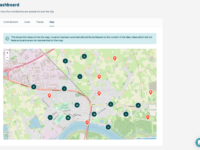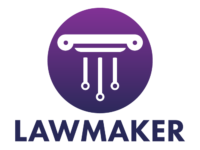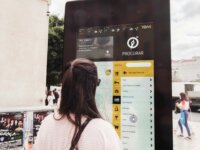The Northern Ireland (NI) Public Sector Innovation Lab has organised a hackathon, “Hack the Pain,” to address these needs of an underserved group: people with persistent pain. These individuals need for better information services for self-management, and the projects that emerged from the hackathon include a virtual reality app for mindfulness, a pain tracking app and a website of information on pain management techniques.
Innovation Tag: Citizen Engagement
LawMaker is a lobby for the lobbyless – a free advocacy tool for those of us who don’t have a professional working for them to influence our governments. LawMaker allows Americans to (1) crowdsource ideas for new laws, (2) build voter coalitions, and (3) engage politicians to advocate for change. Our mission is to democratize democracies by empowering the creation of new laws that originate from real people at the grassroots, instead of from lobbyists and wealthy special interests.
The air-purifying billboard is a Macedonian innovative prototype that aim to clean the ambient air mainly polluted from traffic. There are currently 2 pilot billboards implementing this technology.
The vacuum cleaning based solution, if set to all 820 billboards in Skopje can reduce air pollution by up to 20%, as the filter can purify 2.5 million cubic meters of air per month. The filters can absorb the PM10, PM 2.5 and other harmful particles. Around 200,000 bus passengers and 150,000 more…
All cars on Australian roads must have compulsory insurance (CTP). In the ACT, this insurance was expensive, coverage limited, and most claims needed to be settled in the courts. democracyCo designed and delivered a Citizens’ Jury and extensive stakeholder engagement process to develop a improve the scheme. Over 7 months 50 Canberrans worked with a group of stakeholders to design the improved scheme, which the Government committed to implement.
En 2015, le Parlement de Wallonie a engagé une réforme de son Règlement ayant notamment pour objectif d’associer davantage les citoyens wallons au travail législatif des députés.
Dans ce cadre, plusieurs dispositifs ont été mis en place dont la plateforme "Un décret par tous, un décret pour tous" qui vise à encourager les citoyens à intervenir directement dans la rédaction d’un décret sur base d’une problématique soulevée par un député.
Open policy-making is an opportunity for government and stakeholders to move from linear, polarized, single-issue, interest-based considerations to interactions that are networked, collaborative, opportunity-based and where complexity is viewed as an asset. Adapted for the Government of Canada context, Pol.is is a cost-effective and highly scalable, digital engagement platform that can be used as part of broader strategies to put people and robust evidence at the heart of government decisions.
The Administration of Rome had to decide how to use about 17 million euros for public works in the territory of the VIII District for projects concerning the environment, landscape and public green spaces, sustainable mobility and accessibility, urban regeneration and infrastructure, ideas or proposals for transversal projects. The innovation concerns the decision-making approach. For the first time, city users were involved in deciding how to allocate these resources.
Case Study
Unlocking the potential of crowdsourcing for public decision-making with artificial intelligence

In citizen participation projects, analysing contributions is often a huge challenge for administrations.
CitizenLab has developed machine-learning algorithms in order to help civil servants easily process thousands of citizen contributions and efficiently use these insights in decision-making.
The dashboards on our platform classify ideas, show what topics are emerging, summarise trends and cluster similar contributions by theme, demographic trait or location.
TOMI is a network of interactive street kiosks that allow every citizen to freely use public services on-the-go, in a simple, fast and convenient way, while performing their daily routines on the city streets.
By using TOMI, people can search for a specific public entity/service, choose the one that’s closer to their current location and take a virtual queue ticket to a given public service, with the possibility to require an SMS alert when their queue number is approaching.
Case Study
Innovative use of social media for co-creation of the 4th National Action Plan (2018-2020) –…
Innovative use of social media (Whatsapp) platform to increase participation and disseminate information for the creation of Paraguay's 4th National Action Open-Government Plan. These 14 online groups were created to allow citizens from the countryside, from marginalized and vulnerable groups, to be able to participate on an equal standing with other citizens from urban areas with access to policyholders. It is innovative because it was the first time we used this platform to involve citizens.



